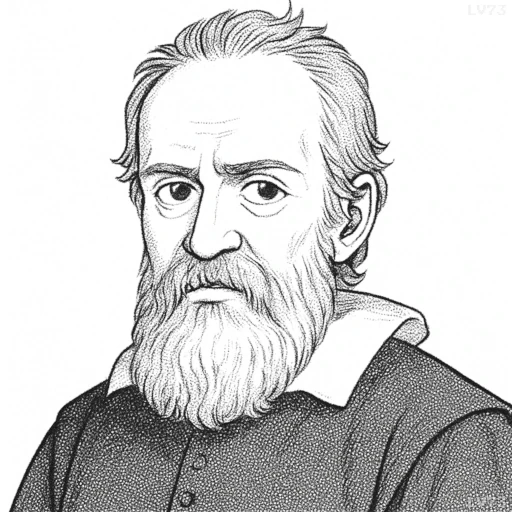“And yet it moves.”

- February 1564 – January 8, 1642
- From the Duchy of Florence (Italy)
- Physicist, astronomer, mathematician
table of contents
Quote
“And yet it moves.”
Explanation
This famous statement, attributed to Galileo, is believed to have been uttered after he was forced to recant his support for the heliocentric theory—the idea that the Earth moves around the Sun—before the Inquisition in 1633. Though he publicly recanted his views under threat of punishment, Galileo is said to have quietly muttered, “And yet it moves,” as an assertion of the truth he knew to be undeniable. This statement symbolizes Galileo’s defiance of authority and his unwavering commitment to scientific truth, even in the face of oppression. Despite the Church’s condemnation of the heliocentric model, Galileo knew that the Earth’s motion was a fact, proven by his own observations and experiments.
In modern terms, this quote speaks to the resilience of truth. Even when powerful institutions or widespread beliefs try to suppress or deny scientific facts, the truth persists, unaffected by authority or denial. Galileo’s defiant remark reminds us that scientific discoveries are not dependent on human approval or acceptance. For example, today, even in the face of climate change denial or opposition to vaccination science, the underlying facts about the environment and public health continue to hold true. The quote emphasizes that truth—once discovered—cannot be undone by authority or intimidation; it continues to stand, no matter how much people may try to ignore or suppress it.
Furthermore, the statement is a reminder of the power of personal conviction. Galileo’s refusal to fully deny his knowledge, even under the threat of severe punishment, illustrates the strength of intellectual integrity. In the modern world, this quote still resonates in the context of scientific ethics and the responsibility of scientists to pursue truth regardless of external pressures. Galileo’s words inspire individuals and researchers today to remain steadfast in the pursuit of knowledge, no matter the obstacles, and to trust that the truth will eventually prevail, just as the Earth’s movement around the Sun was eventually accepted as fact.
Would you like to share your impressions or related stories about this quote in the comments section?

